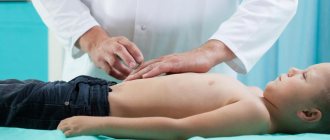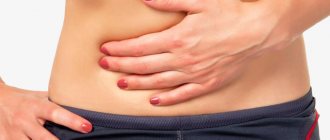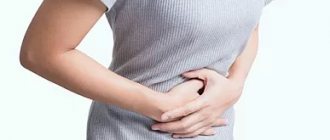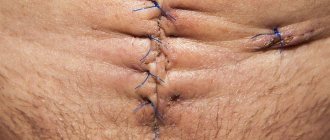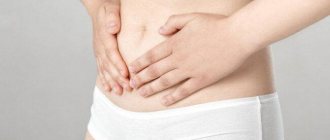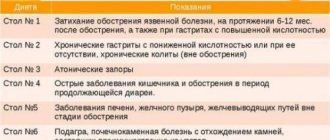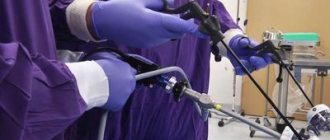The appendectomy operation is considered easy and harmless for the patient and the surgeon. Maybe! But how many cases of peritonitis or late complications occur after a successful intervention? And most often this happens through the fault of the patient. Appendectomy is a wide-ranging intervention on the peritoneal organs. And behavior after surgery also affects the healing process, as does the skill of the surgeon.
Recovery time
The main thing that influences the recovery period is how difficult the initial situation with the disease was. There are two options for the course of the disease: the development of a gangrenous process that turns into peritonitis, or simple inflammation of the appendix without its rupture. In the first case, hospital stay may last a month or even more. It is difficult to determine how many days it will be necessary to stay in the hospital after surgery, since the recovery of each individual organism cannot be predicted. In addition, with the development of purulent inflammation, it is impossible to do without a full-fledged abdominal operation, which significantly increases the period of observation by doctors. How many days do you have to wait after surgery to remove appendicitis using laparoscopy?
Recovery after this type of intervention is much faster. The maximum time a patient can spend in hospital is 14 days if there are no complications.
Reasons for the development of the condition
The gangrenous form of appendicitis occurs when the patient does not promptly seek medical help with the initial signs of inflammation in the cecum of the intestine.
If surgery is not performed in the first 24 to 48 hours, the tissue of the appendix begins to die, its cavity is filled with purulent masses. The pain becomes a little less.
Rehabilitation after surgery
The minimum rehabilitation time after surgery is 2 months. But this is not the maximum period. The patient’s condition, his age, the presence of complications and concomitant diseases will also affect the speed of recovery. Already in the hospital itself, the process of postoperative rehabilitation begins. The first thing people pay attention to is the process of recovery from anesthesia.
To prevent vomit from entering the respiratory tract, the patient is turned on his healthy side.
Antibiotics and painkillers are also prescribed. To restore blood lost during the operation, IVs with saline solution may be prescribed. While patients are in the hospital, they are checked daily for: • Body temperature; • Arterial pressure; • Urination and defecation in order to control their recovery; • Condition of the wound and sutures; • Are there any development of postoperative complications. In the future, the patient is usually sent to a sanatorium and stays there for at least 21 days under the close supervision of a therapist and gastroenterologist. The main procedures for healing and bringing the body back to normal are: physiotherapy and diet. We'll talk about the latter in the next paragraph. Physiotherapy includes the main course - mud therapy with silt sulfide mud. There are many regions in Russia where they use it, but most often they go to Kislovodsk, Essentuki and Pyatigorsk to recover. These cities are famous as gastro-resorts and are loved by tourists not only from our country, but also from all over the world. In the Caucasus, rehabilitation with the mud of Lake Tambukan is an integral part of such treatment. are used to carry out a course of procedures .
The methods of their use are different, but most often they are applied to the stomach, insulated and give the applicators the opportunity to heal the desired area of the body. Such medical products are also sold in pharmacies with or without a prescription, but with the consultation of a doctor.
Registration procedure
The registration of sick leave is carried out by the senior nurse of the specialized department, the head of the department or a surgeon in the clinic at the place of residence. The patient does not participate in filling out the form.
It specifies the causes of disability using special unified codes. Appendicitis corresponds to code 001 - it indicates a disease that makes it impossible to attend the workplace.
After discharge and closing of the sick leave on time, the patient takes the form and gives it to the employer, who fills out the necessary information related to calculations and information about the place of work. The sick leave code for 3-NDFL and the tax service is 2300.
We recommend: Main signs of appendicitis in men
The issuance of temporary disability certificates is regulated by Art. 183 of the Labor Code of the Russian Federation, by orders of the Ministry of Health and Social Development of Russia No. 624n dated June 29, 2011 and No. 31n dated January 24, 2012.
Postoperative diet
The diet after appendicitis must be followed for at least 14 days. Eating is completely avoided the day before and the day after surgery. From liquids you can drink water or kefir 0% fat. All patients who are hospitalized are prescribed a fractional diet. You can eat 5-6 times a day, the portion size should not be large. It is better to choose products that will not cause a feeling of heaviness and bloating. What can be consumed:
- Porridge with water;
— Liquid potato, carrot or zucchini puree; - Rice broth; — Kefir or yogurt with 0% fat content; - Boiled and pureed chicken meat; - Chicken bouillon; - Kissel. After 3-4 days, it is recommended to add black bread with bran and baked apples. You can start eating puree soups, boiled meat and fish. Gradually, the list of permitted products is expanding and returning to the pre-operative one. What should not be consumed at all:
- Large amounts of salt; — Hot herbs and spices; — Peas, beans and other legumes; — Smoked meats; - Bakery products. All these products can irritate the gastric mucosa and can lead to increased gas formation.
Allowed physical activity
The first movements after the operation can be made only after 8 hours. You can fully start walking only three days after the removal surgery. Lying down for a long time is strictly prohibited. Even in the hospital, an exercise therapy complex is prescribed together with a rehabilitation doctor. For the first 1.5-2 months, all physical activity should be limited exclusively to walks and exercises prescribed by a specialist. It is necessary to completely avoid carrying heavy bags and objects. Many patients are concerned about the question: how long after surgery can they resume sexual activity? It is not recommended to rush in any case. First of all, the stitches must heal. But in addition to the external ones, there are also internal ones, which take a little longer to overgrow. Their rupture can lead to the formation of hernias. If the course of appendicitis is favorable, sexual activity is resumed after 10-14 days.
When is sick leave extended?
How many days later will they be discharged if there are indications for extending the certificate of incapacity for work? Sick leave can be extended if the clinical situation meets the following requirements :
- complications during and after surgery, including rehabilitation (peritonitis, sepsis, abscesses, adhesions, thrombosis);
- an adult patient or child has disabled status;
- difficult recovery, impaired mobility after surgery.
To extend the certificate of incapacity for work, it is recommended to contact the head of the surgical department or clinic at your place of residence. The appeal must be oral or declarative in nature in accordance with the procedures of the medical institution.
The average extension period reaches 30 days , however, in special cases, sick leave can be extended up to 12 months.
Attention! In case of prolonged sick leave against the background of persistent functional disorders, you can contact the ITU to assign a disability group. If the issue is resolved positively, the patient acquires the status of a disabled person and receives appropriate benefits.
Restrictions after treatment of appendicitis
In addition to dietary and exercise restrictions, there are other factors that can affect the recovery process. It is recommended to wear bandages and shapewear, especially for obese people, to avoid hernial protrusions. It is important to try to protect yourself from stress as much as possible. Psycho-emotional overload will only worsen the resistance of an already weakened body. It is advisable to stay away from open windows and air conditioners. When going for a walk, dress as warmly as possible. Spending a long time in a hot bath or shower is also not advisable. After the removal operation in the wound, all vessels are not restored immediately, but only after a certain time. When exposed to high temperatures, blood flow increases. Increased blood flow, in turn, can provoke bleeding. For the same reason, lying on your stomach is prohibited. Healing preparations can be applied to the seam. Solcoseryl ointment works well.
Symptoms of the disease
The presence of gangrenous appendicitis can be suspected by the following manifestations of the disease:
- children become lethargic and whiny, complaining of abdominal pain;
- the patient refuses to eat, he often has the urge to vomit;
- defecation disturbances are observed, patients complain of diarrhea and constipation;
- the stomach becomes hard to the touch, flatulence increases;
- In patients, the temperature rises to 39 degrees, chills are observed;
- a yellow or brownish coating appears on the tongue, a feeling of dryness appears in the mouth;
- patients complain of general weakness and loss of strength.
In some cases, patients note that the pain has become less. This symptom does not bode well, since at this time the necrotic process in the appendix has affected the nerve endings and tissue death intensifies.
Complications
With appendicitis, as with any other disease, development is possible. What may cause concern: • Pus in the suture area; • Weakening of the abdominal wall muscles and the development of a hernia; • Constipation or intestinal obstruction; • Peritoneal adhesions; • Impaired liver function and bile flow. If anything from this list appears, you must immediately go to the hospital.
Prevention of appendicitis
In order not to encounter a disease such as appendicitis, you need to follow simple recommendations.
Balanced diet.
Small meals 5-6 times a day are recommended not only after surgery. The correct balance of proteins, fats and carbohydrates will help avoid irritation of the intestinal mucosa, improve peristalsis and normalize stool. Fatty and spicy foods only provoke changes leading to appendicitis.
Do not abuse alcoholic beverages.
Do not ignore chronic diseases of the gastrointestinal tract.
Chronic diseases require regular monitoring by specialists.
This should not be neglected. It is better to spend time and go to the doctor than to then go to the hospital with an exacerbation and stay there for a much longer period. _______ It cannot be said that appendicitis is a disease that is not serious, and the appendix itself is not needed. This process contains special cells that are responsible for immunity. Who would want to lose part of their immune system due to carelessness? That's right, no one.
The danger of gangrene of the appendix
The main danger of the gangrenous form of appendicitis is that if the festered appendix is not removed in a timely manner, its contents will enter the abdominal cavity, causing an inflammatory process in the internal organs. The risk of developing sepsis in this case is also high.
Another danger is that the risk of postoperative complications with this form of the disease is much higher. Often, patients experience peritonitis and internal bleeding, and if the inflamed appendix is not completely removed, the process can begin again.

